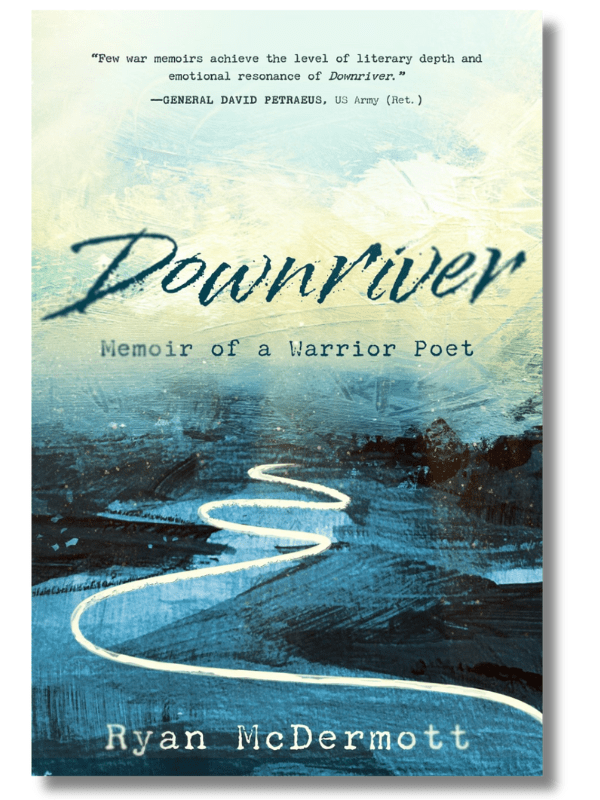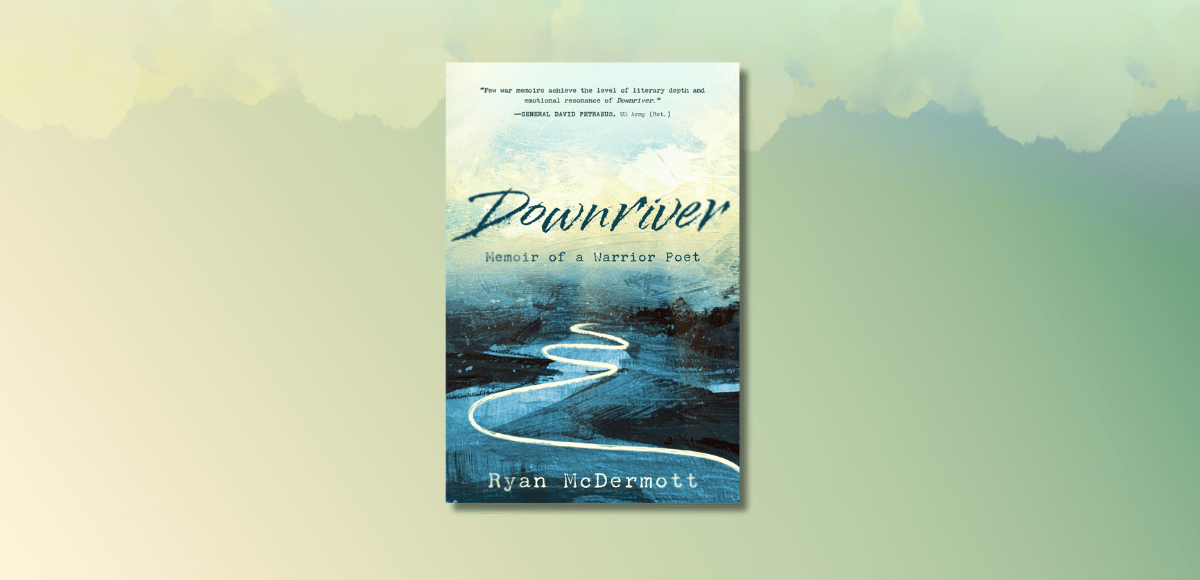
Downriver
by Ryan McDermott
Genre: Memoir
ISBN: 9798888247082
Print Length: 294 pages
Publisher: Koehler Books
Reviewed by Peggy Kurkowski
A soldier’s search for meaning leads him down a path toward redemption in this touching poetic memoir.
A self-described warrior poet muses on his troubled childhood, war experiences, and the struggle to keep his family and finances together in the wake of the 2008 financial crash in Downriver by Ryan McDermott.
The product of fifteen years of rumination and catharsis, McDermott’s memoir is a quest for love, family, and reconciliation with a past that still haunts him. “I learned dreams couldn’t shield me from the inequities of life,” McDermott says about his childhood in 1980s Orlando, Florida.
Growing up with a single mother, McDermott cites the absence of his biological father as the “void” he has always wrestled with, ameliorated at times by a stepfather and uncles who try to provide structure, despite their flaws. It is McDermott’s ambition to rise above the troubling legacies in his family—alcoholism, failure, and co-dependency—that push him to West Point and officer training.
Accepted into West Point in 1996, McDermott found his calling and his creative voice. “Poetry became my voice to express what I had to suppress, the part that longed for connection and struggled with loneliness,” he explains. These poems are reprinted within McDermott’s memoir alongside the moments that inspired them, illuminating the artist underneath the military uniform and camouflage. Simple, yet sophisticated in imagery, the poems serve as a bookend for both the traumatic and triumphant moments in his life.
McDermott sheds light on the difficult, yet evolving relationship with his mother, Patty, and examines the impact of not having a father in his life; one can see in his choice of the military a surrogate for what he lacked at home. “I was a momma’s boy and illegitimate son. I embarked on the West Point experience as a rite of passage into manhood.” His engaging descriptions of a “day in the life” of a cadet, as well as what infantry basic officer training and Army Ranger School taught him are great fodder for those studying leadership principles, as well as for the military enthusiast.
While McDermott marches through his life story in a staccato chronology of military training, exercises, leadership lessons, and the friends he met along the way, the beating heart of the memoir is his intense desire to find love and build his own family. As he writes, “the river of life is rarely straight,” and through a series of twists and turns, McDermott finally finds the woman of his dreams, Lucy, before 9/11 occurs and turns his carefully laid plans upside down.
The narrative turns to more technical (yet fascinating) aspects of Army training and tactical deployment in the Kuwaiti Desert in 2003. In economic prose, McDermott relates his role as platoon leader directing a “hunter-killer team” of tanks and infantry in Iraq. It is during “Objective Peach,” an assault to capture the Al-Kaed Bridge, that McDermott sees his first dead man—an Iraqi man thrown into the bridge railing, eyeless and contorted:
“My proximity to him left a permanent mark upon me, one of many ghosts I still carry from the war. To this day, I can’t cross a bridge without being reminded of those moments. The chaos of the war lingers still.”
In the closing section appropriately entitled “Collapse,” McDermott explains the decisions leading to his employment with Lehman Brothers—a curious career choice at odds with the soldierly life of self-sacrifice. McDermott’s unflinching honesty is admirable as he admits to his “selfish ambition” to become an investment banker: “the childhood fantasy of becoming Luke Skywalker was erased from my mind. I readily gave in to the temptation of the dark side.” The “golden handcuffs” of a high-paying career in finance strain his marriage and his connection to his son, Brandon, as work becomes everything. Until it all came crashing down in the financial crisis of 2008, followed by the breakup of his home and a terrifying home invasion in 2011 that left him beaten and bruised, physically and emotionally.
McDermott uses poetry throughout to color the emotions and internal contradictions during his military training for war—and during the real thing itself—and he includes dramatized scenes with a therapist he sought for help with his PTSD in 2011. These devices work well within the narrative, adding nuance and an objective third party view of his issues. There is much to reconcile in McDermott’s life—with his mother, absent father, siblings, and his wife and son. The journey continues after the last page, but readers will appreciate the raw search for healing and wholeness that McDermott fearlessly conveys through his poetry and now prose.
Downriver is a heartfelt and perceptive examination of redemption and the river-like way of its wandering to life’s next unknown bend.
Thank you for reading Peggy Kurkowski’s book review of Downriver by Ryan McDermott! If you liked what you read, please spend some more time with us at the links below.


0 comments on “Book Review – Downriver: Memoir of a Warrior Poet”